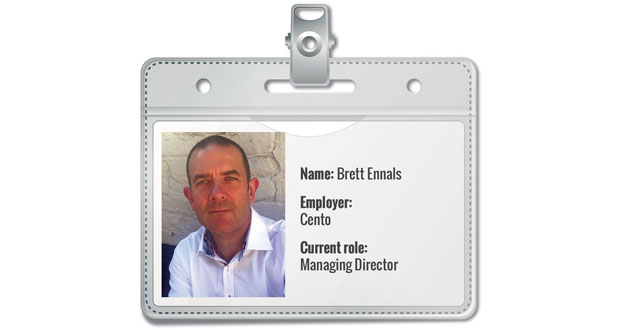Q: What first attracted you to working in FM, did you have much awareness of the profession?
When I was younger I didn’t really know what I wanted to do, I knew I was quite a practical person and after completing an engineering and manufacturing apprenticeship with the MOD I went onto a service engineering role – which is where I got a real taste of the Building Services and FM industry.
Q: How did you progress through the profession to your current role?
As mentioned I started out with the MOD in 1989. This then led me to a service engineer for Abel. I found myself always striving to know and learn more, which led me to a senior site-based engineer role for Gent, I loved this role and the challenges every day meant there was never a boring day at work. In 1997 I moved onto a service manager role with FSE. Then given all my product experience it seemed a natural next step into sales. I had varying roles with Siemens and Honeywell on both the products and services sides of Building Services.
In 2003 I became a senior sales manager for Honeywell, which was great but I soon realised the biggest challenge to them, like many others in our sector was finding the right resource. So in 2005 I took the leap to start Cento recruitment.
Now established over 15 years I’ve never looked back, our role in industry has changed over time from traditional recruitment, to using our industry knowledge and experience with our clients to become more strategic resourcing partners to achieve their goals.
Q: What have you found the most challenging experiences working in FM?
Talent has always been a challenge in the FM/Building Services Industry – hence the birth of Cento. Over the years it has become apparent more so at the engineer level – there is a lack of new emerging talent which has made it highly competitive and being the lower end of the salary range companies don’t want to invest as much in recruiting as they would say a national sales director. This led to us establishing our sister brands Fire and Security Jobs (FSJ) and Lift and Escalator jobs (LSJ) to specifically service this market. This has allowed Cento to continue to be more of a strategic partner for executive hires and or strategic team development.
Q: What have you found most satisfying about working in the sector?
Being in industry for over 30 years the things I love are still the same – The busyness of the industry, the fact that no two days are ever the same. But also that the sector is always challenging, vibrant and dynamic.
Personally having worked both sides, the most satisfying thing for me now is working at that strategic level with our clients to deliver resourcing to meet their business goals. For me matching the right talent that delivers business results is key. Some people I have placed over the years are still in their companies and have risen in the ranks delivering real ROI for our customers investing in their resourcing.
Q: Are you a member of any FM association or body and if so what benefits do you think they provide?
I think it’s important to keep an industry presence so we regularly attend and exhibit at varying sector events during the year (obviously not as many this year!). I am also a member of the Worshipful Company of Security Professionals, The Security Institute and BSIA. The benefits for me as mentioned is keeping up to date with industry trends and news, but also definitely around the educational elements such as courses and over the past year podcasts, round tables and more and obviously when allowed the industry networking is key.
Q: What qualities do you think are most needed for a successful career in FM?
Having made my way through the industry both product and services side I definitely think that resilience and an ability to work under pressure is needed. You need to be able to problem solve and think on your feet to deliver a resolution for your customers no matter the challenge.
Q: What has changed about your job role since the COVID-19 crisis? E.g. home working, furloughed, redeployed?
Personally the biggest change was working from home having come from a sales background I was used to a busy office with lots of buzz and excitement. Going from that to working from home for me and all the team was a big culture shock. We did our best to combat with daily zoom meetings to all keep abreast of industry updates, workloads etc. We also tried to ensure some of the fun elements, so had weekly bingo and fun activities arranged and did a monthly cake run for all our team where we delivered a small token to keep spirits up.
Moving forward we have seen a huge change across the board in industry. Roles that were never thought to be possible remote are now being offered in hybrid working conditions, technology advances have been focused around giving more flexibility to the industry and we only see this as a plus as it will open the industry up to more talent as we move forward.
Q: What is your organisation doing to ensure the wellbeing of staff – whether working at home or returning to the workplace?
Like all companies in industry our staffs’ wellbeing was paramount. We initially offered working from home and then as the offices opened we offered PPE to all staff, introduced a rota to ensure less staff members were in the building with strict 2m spacings in the workplace, COVID procedures and training was given, we installed screens between desks, and continued with additional cleaning. Mental wellbeing was also key for us and something we pride ourselves on taking seriously. We continued with our monthly spirit lifting activities and also increased management one to ones with staff to ensure any issues or need for additional support were identified as quickly as possible. We also introduced a workplace mindfulness app which included meditation and breathing exercises and allowed all team members time in their day to partake.
Q: Do you believe the pandemic has highlighted the important role of the FM sector and what areas do you see as most key?
Yes, not only has the pandemic highlighted the importance of the workers in our industry from an outside perspective, but the really great thing is that companies are recognising the importance and value of their staff who have kept the country going over the past 18 months. Another great thing has been the advancement of technologies such as remotely monitored systems and the investment we are now seeing in these technologies could revolutionise the industry.





